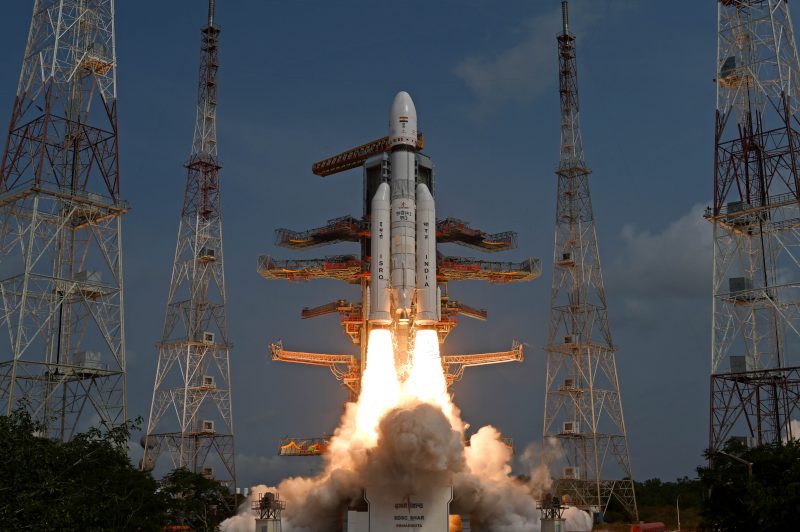
Indian rocket launch completes OneWeb satellite constellation
A mighty GSLV Mark III rocket – the Indian Space Research Organization’s most powerful launch vehicle – lifted three dozen satellites for OneWeb‘s orbital internet constellation during a fast and fiery ascent from the Satish Dhawan Space Centre on Sunday morning (March 26, 2023).
We have lift off!
Thanks to our colleagues at @isro and @NSIL_India for a successful launch. If you don’t already, make sure to follow us for more updates throughout the rest of the mission.#OneWebLaunch18 ? pic.twitter.com/TsYbCZzAnP
— OneWeb (@OneWeb) March 26, 2023
The craft flew at 3:30 UTC on March 16 (9 a.m. India Standard Time; 10:30 p.m. ET on March 25) carrying 36 satellites. The launch means OneWeb’s network is now fully operational after a years-long delay.
The constellation’s completion was hindered by a diplomatic row with Russia in 2022 that ended in canceled flights. OneWeb found alternate launch providers, including competitor SpaceX, which operates the much larger Starlink internet constellation.
Mission success important for India
While this was the next to last batch of OneWeb satellites to launch – 15 more will fly in May from California on a SpaceX Falcon 9 – those launched Sunday brought the network to full capacity.
OneWeb said the penultimate launch allowed the company to finally realize its full mission:
This launch, taking place from the Satish Dhawan Space Centre in Sriharikota, India, will be OneWeb’s 18th launch to-date and its third this year, completing its first generation LEO constellation, and enabling the company to initiate global coverage in 2023.
Launching the satellites that maximized the network’s potential from India carried extra significance, as OneWeb’s satellites will help modernize the country’s internet infrastructure:
This mission marks OneWeb’s second satellite deployment from India, highlighting the collaboration between the UK and Indian space industries. Across India, OneWeb will bring secured solutions not only to enterprises but also to towns, villages, municipalities and schools, including the hardest-to-reach areas across the country.
6th success for Indian heavy lift vehicle
The weekend launch – dubbed the OneWeb India-2 Mission by the ISRO – marked a notable technical achievement for the Indian space agency:
It achieved satellite injection conditions in about 17 minutes and began injecting the satellites from the 20th minute. The vehicle performed a sophisticated maneuver to orient in orthogonal directions and injected the satellites into precise orbits with defined time-gaps to avoid collision of the satellites.
In simpler terms, the rocket made some difficult and impressive 90-degree turns while doing its job.
The liftoff of the 12,800-pound (5,800 kg) payload was the second flight of the GSLV Mk III from the Satish Dhawan Space Centre. It marked the sixth successful launch for the vehicle overall. ISRO intends to use the GSLV Mk III to send a crew to space in 2024.
While ISRO put the rocket into space, it was the state-owned launch agency NewSpace India Limited (NSIL) that brought ISRO and OneWeb together.
Radhakrishnan Durairaj, chairman and managing director of NSIL, praised the reliability of ISRO’s launch vehicle in his live remarks following the successful launch.
I think having a repeat performance of any particular launcher … it’s not an easy thing to do, and what we have demonstrated today using the GSLV Mark III for the commercial customer, it is an extremely momentous day for us.
Last chance to get a moon phase calendar! Only a few left.
Bottom line: The Indian Space Research Organization (ISRO) successfully launched 36 satellites for the OneWeb internet constellation on March 26, 2023.











